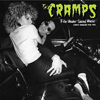- Administrator
- Albums and Singles
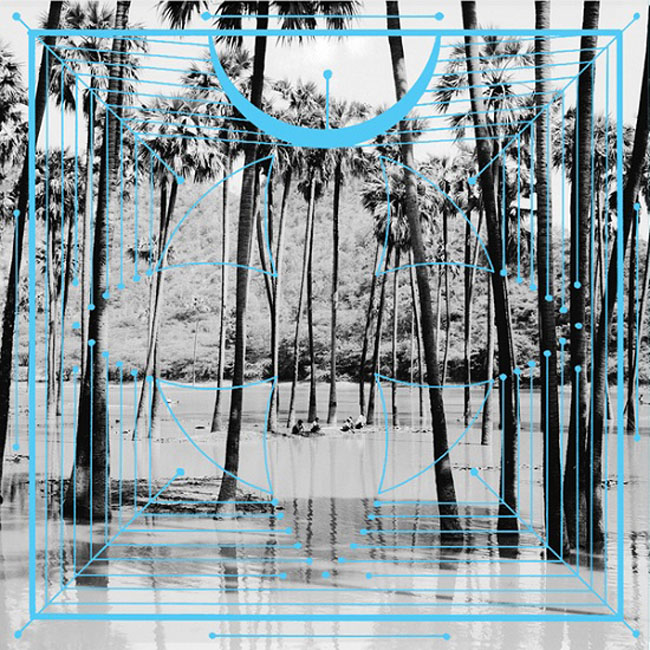 Although this record is a compilation of 12" singles and unreleased tracks, that should do little to dissuade anyone from conceiving of it as an album. Released on Kieran Hebden's own Text imprint (which has seen little activity until recently), Pink carries with it the indelible stamp of a Hebden release, with all the affects and nuance that name suggests. That it was culled from entirely different releases but still fits together is a testament to Four Tet's unique musical identity.
Although this record is a compilation of 12" singles and unreleased tracks, that should do little to dissuade anyone from conceiving of it as an album. Released on Kieran Hebden's own Text imprint (which has seen little activity until recently), Pink carries with it the indelible stamp of a Hebden release, with all the affects and nuance that name suggests. That it was culled from entirely different releases but still fits together is a testament to Four Tet's unique musical identity.
Pink opens with "Locked," one of its strongest moments and a connective song between Kieran's old work and his current dancefloor friendly material. While every Four Tet album is different in some way, a track like this emphasizes the similarities which define his sound: expressive clattering percussion, string harmonics, deep processed bass, and a calculated use of empty space. From there, Pink moves to more specialized territory.
"Lion" is clipped, drony, full of staccato beats and minor homages to minimal and classic house. "Jupiters" is subtractive, an arpeggiated melody and circular polyrhythms playing respective solos before overlapping in the song's conclusion with help from a sampled voice. "128 Harps" also uses a clipped voice sample, whose presence demands constant attention while the wavering bass and descending harp notes carry on around it. "Peace For Earth" is probably one of Four Tet's more indulgent moments, Pink's longest song and a snareless amalgamation of skittering melodic loops similar to something you would get out of those "Tone Matrix" programs available online. It is the only song that is not explicitly dancy, but it serves as a nice counterpoint in context. Formerly unreleased, its inclusion can't help but seem like a deliberate move to flesh out Pink as an album, with sequencing and forethought.
The album is not without its weak moments—the song "Pyramid" in particular seems like a lesser summation of all the other songs' best elements—but it remains true to Hebden's signature style throughout, which means everything here retains the pastoral and emotional significance present on past records like There Is Love In You and Rounds. It's not as strong an effort as either of those, and it is less of a statement due to its omission of interludes and the lack of a unifying concept. But everything here works better on an album than as singles. Even when the songs head uncertainly for genre imitation or rote exercises, Kieran's ear for songcraft saves them from cliché.
sample:
Read More
- Administrator
- Albums and Singles
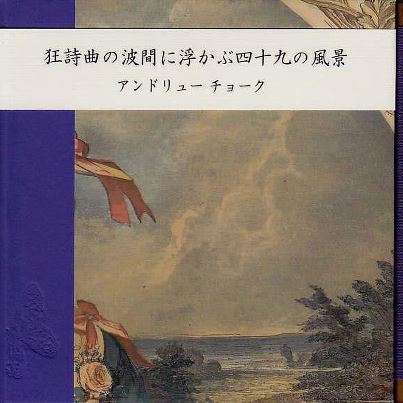 By cultivating a garden of ambient vignettes, Andrew Chalk brings his usually sprawling soundscapes into precise focus, never allowing anything to repeat itself too deliberately. Forty-Nine Views is a wistful record of fractured memories; brief glimpses into a surreal world triggered by a collection of electronic melodies and effects, each song distinct in small degrees.
By cultivating a garden of ambient vignettes, Andrew Chalk brings his usually sprawling soundscapes into precise focus, never allowing anything to repeat itself too deliberately. Forty-Nine Views is a wistful record of fractured memories; brief glimpses into a surreal world triggered by a collection of electronic melodies and effects, each song distinct in small degrees.
When a large percentage of your output consists of unkempt album-length suites, a move as simple as conservation can throw some people off. Forty-Nine Views might accurately be compared to former Chalk records like "Violin At Night," where Andrew's discretion on song lengths began to call for truncated, separate pieces. This record just follows that line of thought to its logical extreme.
Forty-Nine Views is Chalk in a studiously selective mood, editing his tracks down to one minute or less, refusing to allow any ideas to flourish, instead letting each one out just long enough to make an impression. I found myself hoping at least one song would have evolved into a fully realized centerpiece, but to no avail. The procedural limits on Andrew's work here requires that everything be quick enough to pass by if you were not paying attention. As a result, there is a bewildering level of nuance on display that might go unappreciated.
There are no "favorite songs" on Forty-Nine Views. There are a few timbral anomalies which distinguish themselves among the record: the pinging echoes of "Silver Winds" and "Obelisk," the hollow whirls of "Jewels In The Sand," and the sudden peaks and valleys in songs like "Sleeping Stillness" or "Waves In Plumes." But these are as likely to impress as the rest of the album, which is without any missteps.
Songs pass in and out in seconds, moving between crystalline synth sounds, faint field recordings, and subtle filters with demonstrative impatience. Each one seems like a bite sized sample, offering themselves up for individual consumption. But for having so many songs to pick from, this record works best as a singular effort. Playing this start to finish, with the transitional silences serving as thematic bridges, has a perfect serenity to it I can't explain. It's a medley of poetic aural miniatures.
Andrew Chalk's work is ceaselessly beautiful, and pastoral, and his packaging is always an essential part to that equation. As with past albums, Forty-Nine Views has the recurring motifs of romantic and illustrative artwork, minimalist handmade sleeves, and Japanese characters for liner notes. A fantastic level of care went into this release.
samples:
 
 
Read More
- Administrator
- Albums and Singles
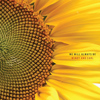 It has been several years since the last Windy & Carl album, but thankfully they are back and just as reliably excellent as ever.  Maybe even more so, as several of these songs easily stand with the duo's finest work.  Some long-term fans may be a little disappointed that they don't indulge their song-like or epic-length tendencies much this time around, but I doubt it: We Will Always Be largely sticks to what they do best  (beautifully glacial and glistening guitar) and does it warmly and purposefully.
It has been several years since the last Windy & Carl album, but thankfully they are back and just as reliably excellent as ever.  Maybe even more so, as several of these songs easily stand with the duo's finest work.  Some long-term fans may be a little disappointed that they don't indulge their song-like or epic-length tendencies much this time around, but I doubt it: We Will Always Be largely sticks to what they do best  (beautifully glacial and glistening guitar) and does it warmly and purposefully.
This album has quite an endearing and unusual origin story–it was never originally intended to be publicly released.  The story begins back in 2008, when Windy Weber released her first solo album, the uncharacteristically dark, caustic, and brooding I Hate People.  Urged on by their friends, Carl Hultgren decided to start work on his own solo effort, which he worked on for a year and a half, then presented to Windy as a gift for her alone.  When she told him that he should release it, he suggested that they make it a collaboration instead.  Consequently, We Will Always Be is essentially Carl's solo album enhanced by occasional cryptic and quiet, oft-whispered vocals from Windy.  Weber also contributes guitar to one (undisclosed) song, but her most significant contribution is as muse: Carl has rarely seemed more inspired and the blissed-out shimmer of these pieces serves as the perfect counterbalance to I Hate People.  Carl clearly loves people (at least one, anyway).  Equilibrium is restored.
The opening "For Rosa," however, is a notable departure from the rest of the album, as Windy languidly sings over an unprocessed, strummed acoustic guitar and some buried amplifier sizzle.  It is difficult to imagine a Windy-less version existing, but the remaining seven pieces are all very much devoted to Carl's shimmering, multilayered guitar heaven.  Obviously, that is pretty expected territory for Weber and Hultgren and they've covered it many times before (and quite beautifully).  Nevertheless, there are some subtle and less expected touches that elevate this album into something quite special.  For one, this sounds like ambient music, but it doesn't feel like it: these songs have a presence and restrained intensity to them that prevents them from fading into the background.  Secondly, there is a very rewarding and distinct arc to the sequencing.  The relatively brief early pieces are somewhat muted and static, but the songs grow steadily longer, better, more varied, and more intense as the album unfolds.  The final three pieces, in particular, are all absolutely mesmerizing and essential (albeit in Windy & Carl's characteristically understated way).
That propensity for understatement and subtlety serves the album well, as it makes the late album rough edges seem quietly devastating.  Those edges get their roughest on the closing 18-minute epic "Fainting in the Presence of the Lord," which is the unquestionable jewel of the album (and possibly their career).  I am not sure quite how the sounds are being made or who is making them, but it initially resembles a static-ravaged cat singing over a slowly intensifying bed of sacred-sounding organs.  Then  a slow-motion wave of gnarled, distorted guitar noise gradually envelops everything and it is wonderful.  I have rarely heard guitars used in a more poignant, heartbreaking manner: Hultgren evokes mingled feelings of anguish and ecstasy that words could not possibly hope to convey.  Such a spectacular crescendo necessarily makes the rest of the album seem a bit pale in comparison, but the less-intense "Nature of Memory" is another huge highlight.  Without those two pieces, We Will Always Be would already be a very good Windy & Carl album.  With them, it is easily among their best.
Samples:
 
 
Read More
- Administrator
- Albums and Singles
 I had a very hard time understanding the disproportionate amount of excitement surrounding last year's Pass Me By and We Stay Together EPs, but I have since come around a bit: there are definitely a couple of areas in which Stott truly excels.  In many respects, Luxury Problems essentially picks up exactly where those releases left off, but there is one massive curve-ball: the addition of vocalist Alison Skidmore.  That particular innovation turns out to be a mixed success, but overall the highlights are both more impressive and more frequent this time around.
I had a very hard time understanding the disproportionate amount of excitement surrounding last year's Pass Me By and We Stay Together EPs, but I have since come around a bit: there are definitely a couple of areas in which Stott truly excels.  In many respects, Luxury Problems essentially picks up exactly where those releases left off, but there is one massive curve-ball: the addition of vocalist Alison Skidmore.  That particular innovation turns out to be a mixed success, but overall the highlights are both more impressive and more frequent this time around.
My favorite element of Stott's work has always been his talent for heavy and hypnotic locked-groove-style rhythms, which he executed most beautifully on "New Ground" from Pass Me By. He recaptures that magic at least twice here, first with the bludgeoning, machine-like pulse of "Numb," and again with the deep metallic throb and break-beat combination in "Sleepless."  The title piece achieves equal success with a slight variation, as a relentless and obsessive down-tempo groove burrows sensually through a cloud of murk and angelic cooing.
In a broad sense, the decision to add a female vocalist was a very good one, as Alison's breathy vocals add some welcome humanity and sexuality to Stott's eerie, slow-moving post-industrial dub techno.  They work best, however, when Andy aggressively chops and loops them, as he does on the aforementioned "Numb."  They also work nicely when they are weirdly floating and disembodied, as they are on "Luxury Problems."
Unfortunately, the balance between Stott's deep, ominous atmospheres and Skidmore's ethereal vocals skews a bit too far towards the latter in a few cases.  For example, if it were not for some grinding metallic textures and wobbly dubstep bass, "Hatch the Plan" would sound uncomfortably like a fairly commercial house single. The closer, "Leaving," also lands a bit far from the mark for me, as Alison's layered, reverb-heavy, and blissed-out vocals share little common ground with the material that precedes them, aside from yet again showcasing Andy's sharp editing and mixing skills.
That curious stylistic schizophrenia rears its head again with the jungle/drum n' bass throwback "Up the Box," which makes it arguably the album's biggest shortcoming: Stott seems to be having some difficulty maintaining a distinctive aesthetic while expanding his sound.  My other primary issue is that Stott's prodigious textural, rhythmic, and editing talents only work when they are in service of strong ideas, which is not always the case–Andy sometimes seems to be trying to force barren motifs into songhood through sheer production wizardry alone.  However, even with those inconsistencies and miscalculations, Luxury Problems has defininitively claimed its spot as my favorite Andy Stott release, as the three songs I like are absolutely killer and Skidmore's human warmth and melodicism have made Stott's vision considerably more dynamic and listenable.
 
 
Read More
- Administrator
- Albums and Singles
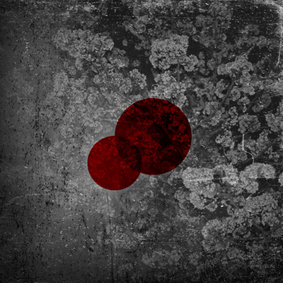 It seems like most (if not all) of the better ambient artists have moved onto other things in recent years, but Auburn Lull guitarist Jason Kolb and Danish producer Jonas Monk (Manual) have done their best to pick up the torch left behind by bands like Stars of the Lid.  Then again, perhaps this is just sort of an inadvertent time capsule of an earlier era, as Monk and Kolb's trans-Atlantic collaboration has been painstakingly unfolding since 2005.  In any case, the duo have done a fine job filling that languorous void (even if I was not terribly concerned about that particular void remaining open).
It seems like most (if not all) of the better ambient artists have moved onto other things in recent years, but Auburn Lull guitarist Jason Kolb and Danish producer Jonas Monk (Manual) have done their best to pick up the torch left behind by bands like Stars of the Lid.  Then again, perhaps this is just sort of an inadvertent time capsule of an earlier era, as Monk and Kolb's trans-Atlantic collaboration has been painstakingly unfolding since 2005.  In any case, the duo have done a fine job filling that languorous void (even if I was not terribly concerned about that particular void remaining open).
I generally think that entirely too much emphasis is placed on process in abstract music, but these 15 pieces originated in a somewhat unusual way, as Jason and Jonas set out to create imagined soundscapes for places they had never been (ie- Jonas would describe some place in Denmark and Jason would attempt to compose something that captured its essence).  Also, most of the music here was originally performed on only a guitar with some effects pedals, which is noteworthy only because it is recognizable as such only rarely.  I recognize that the whole album could have been recorded on a goddamn kazoo if Monk had an infinite amount of time to shape and process it with his software, but that origin gives the album a bit more of an organic flow than is common with ambient of the "I bought a synthesizer!" variety.
That said, Monk was much too overzealous in his processing for my taste, as many of these pieces are too edgeless and pastoral to offer anything particularly distinctive.  It is clear that the duo purposely set out to make an album of endless warm and shimmering swells, however, and they definitely succeeded at it, so it may be a bit unfair to critique them for not transcending their chosen genre.
Unfortunately, the handful of occasions where Billow Observatory allow themselves a bit of crackle and grit ("Helsinki Radio," for instance) stand out as obvious highlights and offer glimpses of what could have been a better album.  As it stands, it is merely a good one: anyone looking for slow-moving, dreamy ambiance will be quite happy with this effort (there is quite a lot of it), but I was hoping for a bit more.
 
 
Read More
- Administrator
- Albums and Singles
AIDAN BAKER & THISQUIETARMY - DOCUMENT: EUROTOUR 2011 - LIVE IN PARIS & LJUBLJANA

The long awaited 3xCD document from Aidan Baker & thisquietarmy's
European tour in 2011 is finally available!
This document should have been available sooner, but the magnitude of
this project overcame several mutations. In the end, we wanted to
present this document as a very limited box set with tons of goodies
as to relate the tour experience as much as possible, and to be
distributed directly into their hands of our closet fans. No middlemen
& no promos for this one. Thus, we have chosen to release it through
TQA Records (thisquietarmy's label) & Pirate Ship Records (one of our
mutual fan), with the exclusive distribution from Basses Fréquences
(our mutual French label) & Broken Spine Productions (Aidan Baker's
label). This document presents 3 live sets on 3 separate black-
bottomed discs:
Disc 1 (silver) - Aidan Baker & thisquietarmy - Live in Paris (May 29th, 2011)
Disc 2 (white) - Aidan Baker - Live in Ljubljana (June 7th, 2011)
Disc 3 (black) - thisquietarmy - Live in Ljubljana (June 7th, 2011)
The Paris show was set up by Basses Fréquences, at the Village Label
of the Villette Sonique festival for a collaboration between Aidan
Baker & thisquietarmy, in which Aidan have decided to play the drums
merely five minutes before the show started. Needless to say that this
recording has captured an incredibly unique & spontaneous performance
that was not rehearsed in any way, and that could never be reproduced
again. The solo sets from the Ljubljana concert (set up by Rok
Pregelj) were recorded at Menza Pri Koritu with the collaboration of
the venue's soundman Marko Trsenjak. Aidan's set was completely
improvised, while thisquietarmy's set incorporates some open-ended
song structures from his latest releases mixed with several improvised
segments.
Additionally, we have included a tour report, a tour diary (written by
Eric Quach), 3 flyers from the Bochum (designed by Dimitrios Kaitsis),
Paris (designed by Jerome Moncada) & Ljubljana (designed by Zoran
Pungercar) show and an unique set of 6 photographs randomly picked
from 100 photos taken during the tour by Eric Quach. All of these
items fit inside an elegant white A7 envelope, on which was printed a
photograph of Aidan Baker & thisquietarmy, taken the morning after the
first show of the tour in Bochum, Germany by Cristobal Marquez.
The whole thing is enclosed inside a beautiful white DVD triple-case.
Lastly, every case is decorated with an old and unique European stamp,
and also includes a custom-made guitar pick embedded with Pirate Ship
Records' & TQA Records' logos. Everything was designed, printed, cut
and hand-assembled by Eric Quach, with the help of Jason Sykes.
Release date: Febuary 14th, 2012. Regular price: 25$ + shipping.
Pre-order between Febuary 7th and Febuary 13th to reserve your copy,
specially priced at only 20$ + shipping:
https://thisquietarmy.storenvy.com/products/256477-tqa021-aidan-baker-thisquietarmy-eurotour-2011-3xcd
Also available digitally for 10$:
http://tqarecords.bandcamp.com/album/tqa021-aidan-baker-thisquietarmy-document-eurotour-2011-live-in-paris-ljubljana
Read More
- Matthew Amundsen
- Albums and Singles

The album is uniformly good even if no songs in particular stand out from the others. The arrangements tend to shy away from vivid distinctions or extremes of any sort. Instead, they share a common hazy space somewhere between longing and regret, floating on drifting memories. The group paints in muted colors, mixing bittersweet melancholy with nostalgia.
Especially on a song like "Bluff Lake Forgotten," the group's songwriting strays from the obvious, concentrating instead on small, delicate melodies rather than big hooks. The result is surprisingly expansive, like a blurry wide-angle portrait of a landscape. Generally, the songs with vocals work a little better, such as "Highway Driveway" and "Nebraska Broadcasters," because the arrangements are a little livelier than those of the instrumentals. The title track in particular is a bit of a disappointment because the charm of its repetitive guitar quickly wears off and the drumbeat is a little dull. Yet perhaps the strongest track is also the closer, "Silhouettes Astray," which best incorporates vocals with the other instruments, ending the album on its highest note.
At just under half an hour, He Really Got Through to Advertising is a concise snapshot. The mood doesn't change too much throughout its course, but it’s presented in a digestible enough portion that that doesn’t detract from its enjoyment.
Read More
- Matthew Amundsen
- Albums and Singles
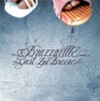
Most of the tracks are sunny and light pop songs interspersed with occasional forays into sappy and sentimental territory. The best of them are mellow soundtracks to sitting around a pool and drinking margaritas, but a few have a little more bite. My favorite is "Star Called Sun" because of its infectious rhythm, tight arrangement, and subtle keyboard fuzz. A nice arrangement transforms "Jesse James" from a wistful ballad into a punchy rock song. "Mr. Suicide" is also pretty good, this time with otherworldly keyboards providing the melody. "Ugly Babylon" has a similar feel but is driven by a slithering bass line.
Some of the slower songs hinder the album with their gentle longings, sweet talk, and lackadaisical bliss. A couple of the songs in this style, like "Bosphorus" and "Taksim," are decent contrasts to the rest of the material, but after a while they clutter the album. Some, like the title track, "Madelena," and "Lena," are simply momentum killers. Then there are a handful of songs that are merely ordinary. I hesitate to call them generic because most of them are well-written and have nice arrangements even if they’re not terribly memorable.
Because lesser groups have made careers out of worse material, it would be a disservice to Brazzaville to dismiss them out of hand without acknowledging how catchy some of these songs are. I prefer the more energetic songs overall, and it is a shame that there aren’t more of them.
Read More
- Matthew Amundsen
- Albums and Singles

Main songwriter Julie Davis leads the group with her voice and upright bass, with support from Carrie Beeder's violin and cello and Brigid McAuliffe's accordion. The first few songs encapsulate the album's overall feel, with few changes thereafter. Most of the arrangements are a vague mix between jazz and gypsy folk with vocals sung in a somewhat blasé manner. While the majority of the tracks are originals, they also cover "Summertime" and "Old Man River" and use the poetry of T.S. Eliot and Emily Dickinson for lyrics on "Prelude 2" and "Some Things That Fly There Be" respectively. All are more or less effective in asserting the group’s aesthetic on the material.
The album benefits greatly from the pristine recording quality. Although the electronics are apparent, they blend so well in the mix that there isn't an obvious audio difference between them and the acoustic instruments, which is not always an easy feat to pull off. The voices are uniformly strong, and there are obvious distinctions between the other instruments. Everything is well balanced for clarity, yet the minimal instrumentation never sounds bare or sparse.
My only complaint is that so many of the tracks sound alike. I would have preferred more variation of the tempos, arrangements, and vocal delivery because some of the songs start blending together by the time the album finishes. Still, the group does a great job of establishing and maintaining a mood all their own.
Read More
- Scott Mckeating
- Albums and Singles
Sounding like a Post skunk rehab version of The Skaters, albeit sweated down to one man, "Glandulord" rattles the roof. Refusing to balance on the raw seesaw of sounds used, bowed drones and looped vocals might reveal a few similarities to other underground acts but Neon Tempal aren't easily pigeonholed. "Magnator" covers all the bases with textures, explosions and actual rhythms all generating energy. Some of the bell and metal pieces resemble a kind of urban dawn chorus with the sparks as dew. The aluminium rattle moving between wild eyed battery and a musical swell. 2 features a number of brief musical interludes that are heavy on light bell work and unidentified rustle. In their length they reveal an artist not stuck on the idea of twenty minute jams to get something across to the audience.
Read More

